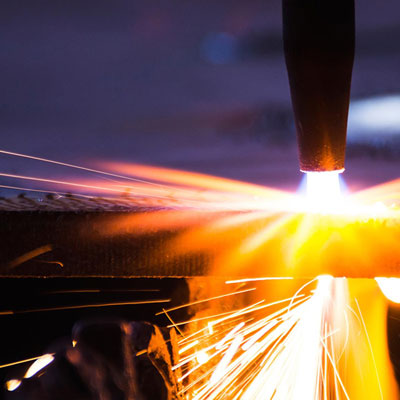Sustainable manufacturing is centred on developing sustainable solutions to real-world industry problems.This is achieved by adopting a systems approach to identifying and tackling root causes in an evidence-based manner.
Improving resource efficiency by reducing energy and water usage, and by dematerialisation underpins the specific process understanding. Holistic treatment of process streams to complete factories underpins the systems approach. Computer models which simulate specific manufacturing processes, such as casting or machining, to whole process simulation or cost modelling are used to provide solutions to companies in addition to the expertise of our research staff.
Our sustainable manufacturing activities are informed by challenges and opportunities in practice leading to research, technology transfer, teaching, consultancy and short course activities. We partner with leading companies as well as universities and non-governmental organisations (NGOs).
About our research
• Auditing of processes to identify energy and material inefficiencies using staff expertise and computer software
• Casting process simulation using software such as Flow-3D and Magmasoft to identify material waste and efficiency and reduce scrap rates by understanding defect generation
• CFD modelling of liquid material processing using Flow-3D
• Machining modelling and simulation using codes such as ABAQUS to reduce energy usage in grinding and other subtractive processes
• Modelling of glass manufacturing using Glass Furnace Model (GFM) to understand thermal patterns and effect of distribution of charge on process efficiency
• Modelling of whole manufacturing systems or processes using software such as Witness and Virtual Environment.
Our facilities
• Additive layer manufacturing capability
• Factory and process layout modelling
• Life Cycle analysis software
• Materials selection software with eco-audit capability
• Novel single shot casting capability for lower energy casting
• Process modelling software in casting to aid design
• Rapid prototyping.
Working with us
We have a passion for impact on practice. Our staff are research leaders with a pride in the relevance of our activities. These values are shared by the research and taught students that we recruit. Between staff and students we tackle industrial problems to provide solutions as well as feed into current and future research programmes.
We engage with businesses in a variety of ways. This can start with simple and fast mechanisms such as individual staff providing consultancy on a per diem basis. Students on our taught modules can be used to rapidly solve specific live problems. At the other end of the spectrum are long-term research partnerships to bring early research challenges to pre-production state.
Short engagement includes company staff presenting their expertise to our students as well as setting problems at the beginning of the week of a taught module by web conference and receiving a presentation at the end of the week of outcomes of their analysis of the problem. We also run short courses which maybe bespoke or more general.
Medium term engagements include contracting individual four month student projects and three month team projects to address significant strategic challenges. Our students develop significantly during these periods and our collaborating companies gain rapid development of projects using our students supported by our academic experts.
Longer term we regularly partner with industry on development of processes, technology and people. We work with companies to gain funding through UK and EU government funding to address changes on production system design to through to process technology development.
Examples are six-36 month Knowledge Transfer Partnership programmes (KTPs), Engineering and Physical Sciences Research Council (EPSRC) fundamental research and Technology Strategy Board (TSB) technology transfer programmes or fully industry funded research fellows. The agenda is set in partnership between Cranfield and the company (companies) and will be determined by the financial commitment and the technology readiness level.
Many of our research students are registered part-time whilst maintaining the employment in the partner companies. This enables long-term development of staff as well as embedding new capabilities within our partner companies.
